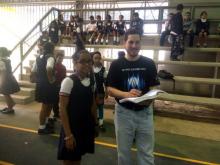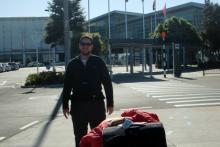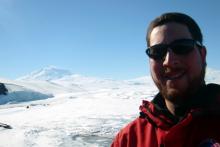Update
En Español
Para ver el texto en español, ingrese primero en un diario y luego haga clic en el botón tabulador que lee "Translations".
You can follow the expedition journals in Spanish by clicking on a journal page and then clicking the Translation tab.
New Resource
Armando wrote a book about his experience! There is a forward by his researcher. You can download a PDF of the book here.
What Are They Doing?
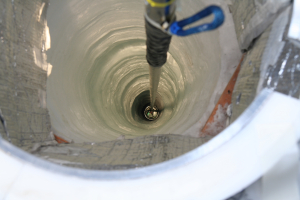
All neutrino detectors rely on observing the extremely rare instances when a neutrino does interact with a proton or neutron. This transforms the neutrino into a charged particle of the same type as the neutrino flavor (electron, muon, or tau). Muons are charged particles that can travel for 5-10 miles (8-16 kilometres) through matter depending on their energy, and generate detectable light in translucent media.
IceCube is made up of thousands of sensitive light detectors embedded in a cubic kilometre of ice between 1450 m and 2450 m below surface. The sensors are deployed on strings in the ice holes that were made using a hot water drill. IceCube detects about 100,000 neutrinos a year, and has a projected life time of two decades. The data collected will be used to make a "neutrino map" of the universe and to learn more about astronomical phenomena, like gamma ray bursts, black holes, exploding stars, and other aspects of nuclear and particle physics. However, the true potential of IceCube is discovery; the opening of each new astronomical window leads to unexpected discoveries.
Where Are They?
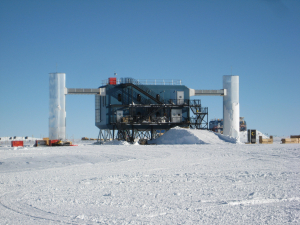
Latest Journals

Dr. Madsen is the chair of the Physics Department at UW-River Falls and Associate Director of the IceCube Neutrino Observatory where he directs the education and outreach program. His research interests include heliophysics and astrophysics, which he has studied at his various projects in Antarctica. In addition to research, Dr. Madsen is committed to reaching a broad audience beyond the research community. He is involved in education and outreach for the IceCube project including professional development courses for teachers and science and math instruction for the UWRF Upward Bound Program. He collaborates with a number of programs and institutions in addition to PolarTREC, including the Knowles Science Teaching Foundation, UW-River Falls Upward Bound and McNair Programs, and service groups (Rotary International, Boy and Girl Scouts, university alumni associations, etc.). You can read more about Dr. Madsen's work here and here.
"Working in Antarctica is a wonderful adventure, and it is great to provide opportunities for others to have this awesome experience."


